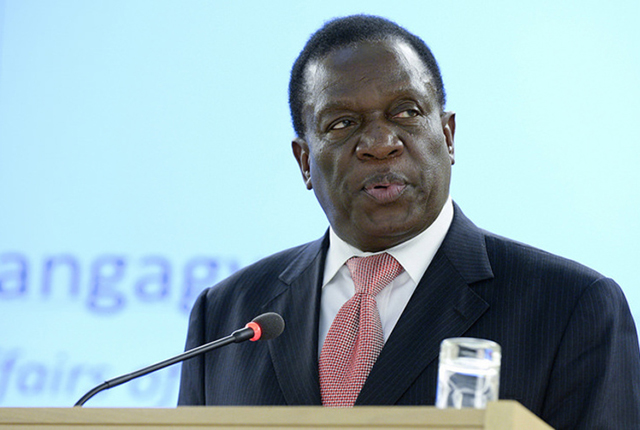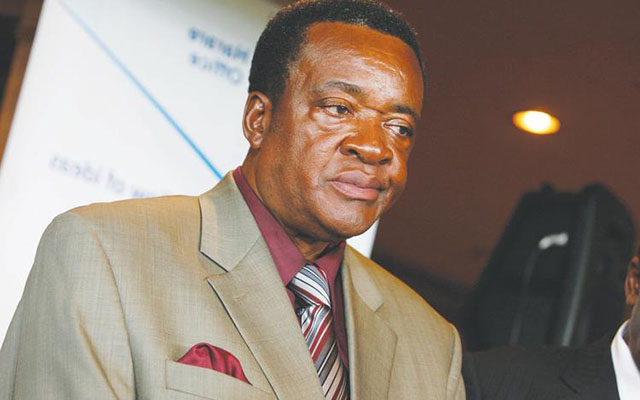Thumbs up to lean Govt: Now for performance

Martin Tarusenga
The swearing in of the new Cabinet on Monday and the setting up of ministerial targets the following day, has brought with it high hopes as President Emmerson Mnangagwa, has for the first time in Zimbabwe, earnestly and honestly lived up to a promise of hope – the promise of a lean Government.
What remains is for the President to deliver on the promise of performance. While there will be peculiar problems like in any project, it is the expectation of most Zimbabweans that high performance by the new Government should not be a problem in the short run.
This is because the new Government is expected to achieve by merely correcting the glaringly wrong things that the previous Government perpetrated intransigently. Running an unnecessarily large redundant, inefficient, corrupt government was for instance one glaring wrong that the previous Government perpetrated, and that the current Government should aim to correct in the short run.
Apart from paying employment packages for no output at all, from taxes and sometimes from borrowed funds, widespread unabated corruption and inefficiency among civil servants from this previous Government, felled the economy from the roots.
By way of an example, pensions and insurance service provision would be held under siege by the Insurance and Pension Commission (IPEC) and by high ranking Ministry of Finance (MoF) officials. The officials consistently and persistently hindered the honouring of rightful contractual benefits from pension and insurance contracts.
Such hindrances have over time come in a motley of subterfuge and stratagems manifesting themselves as the recent alleged meddling with the Commission of Inquiry set by the then President in late 2015, the previous suppression of the 2012 Investigation report on an investigation of the same issue, the surreptitious appointment of conflicted IPEC Board members without any public consultation, and the retention of such Board members despite public protest, the appointment of IPEC officers with no clue how rightful contractual benefits are evaluated, and the deliberate delays of the revision of pension and insurance legislation to close loopholes used by insurance companies to prejudice pensioners.
The latter hindrances have all been devised to exonerate errant pension houses and insurance companies. Compelling evidence on these hindrances, and on public protests over the hindrances, abound in news items, articles and other documents dating back 2009.
In consequence of the hindrances, several issues remain outstanding not least that pensioners and insurance policyholders have still not been paid their rightful contractual benefits, upwards of US$12 billion, statutorily required to support these benefit claims has been misappropriated, and the pensioners, policyholders and the general public can no longer trust service provision of the two industries, with the IPEC and MoF officials in question at the helm.
With the loss of public confidence in the two industries, the intermediary role of the two industries of harnessing household disposable income into the economy as long term savings in pension schemes and insurance policies (part of domestic investment) is just about to be suffocated by the IPEC and the MoF officials.
Yes, public trust and confidence underpins the well-functioning of these two industries and the financial services sector as a whole. And to be sure, the records of the Registrar of Pensions (now IPEC), show that the pensions industry alone (excluding NSSA) raked an average of US$230 million into the economy every year from 1987 to 1998.
With very little in the way of benefit payment over this period, as the contributors were demographically still maturing into retirement ages, the industry should be worth upwards of $18 billion, taking into account an asset base of about US$3 billion in 1992, investment returns over the period, less charges and the little in benefit payments.
In terms of the contracts and the statutes, insurance companies are supposed to have injected these savings as investments in high return projects, and well managed companies (as shares) in such industries as mining, agriculture, construction and so on.
The corrupt actions of IPEC and MoF officials as manifested by the hindrances outlined above have however shielded insurance companies and other pension houses, with the result that pensioners continue to be denied their rightful benefits.
The new Government of President E.D Mnangagwa merely has to stop these glaring hindrances, instil public confidence in the two industries, say in a month or two, enable the two industries to play its macroeconomic intermediary role, of raking the monthly US$230 million plus NSSA contributions from households, into the economy.
The new Government must enact laws that require exacting deterrent on-going solvency measures of pension and insurance funds, in the process enshrining use of established principles and practices of benefit calculation (and liabilities thereof), of investment management of pension/insurance funds, of levying charges against these funds for services rendered, for the fair treatment of pensioners and so on.
This will call for a regular assessment framework for competent officials in the MoF and at IPEC.
As the President instructed his Ministers to adopt “quick-win” measures “ . . . to improve the livelihood of Zimbabweans in the shortest period . . . ” the MoF and IPEC must remove the glaring hindrances highlighted above and improve livelihoods of pensioners and insurance policyholders in the next two months.
Disclaimer: Opinions expressed herein are those of the author and do not represent those of the organisations that the author represent.
- Martin Tarusenga is General Manager of Zimbabwe Pensions & Insurance Rights, email, [email protected]; telephone; +263 (0)4 883057; Mobile; +263 (0)772 889 716.











Comments